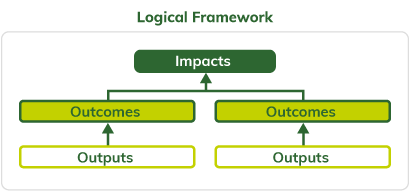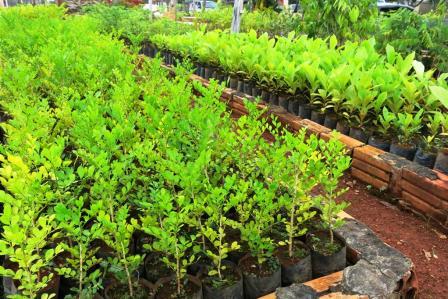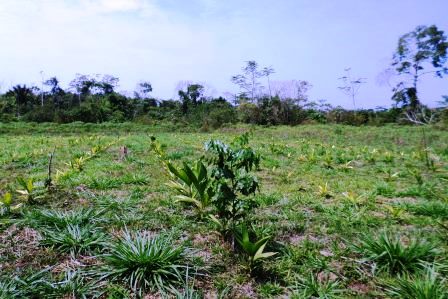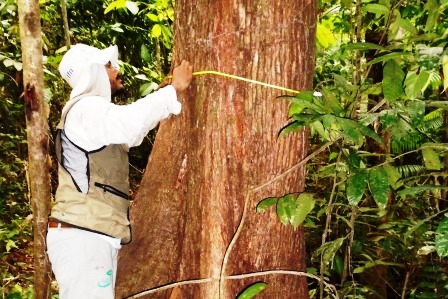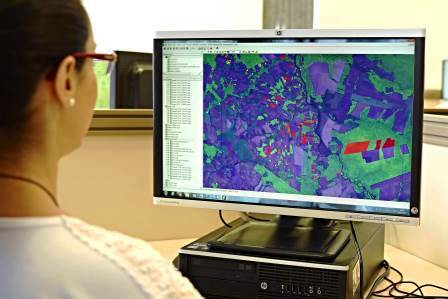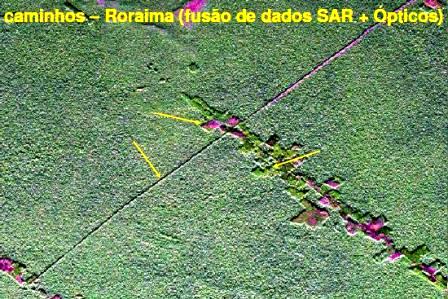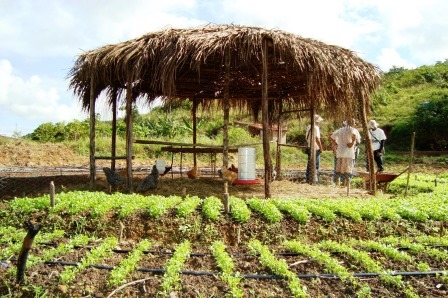ACTIVITIES CONDUCTED
Two assemblies were held to update the PGTA (Territorial and Environmental Management Plan) of the Kayapó Indigenous Territory (TI), with broad participation from indigenous leaders, yielding positive results in terms of unity among villages, with convergence on strategic issues for territorial governance. A highlight was the role of Indigenous Environmental Agents (AAIs), who brought information to qualify discussions on territorial management and played a significant role in these outcomes.
The three training modules for Indigenous Environmental Agents (AAIs) planned in the project were carried out. The first took place in the Mojkarakô village, focusing on data collection related to the territory component for updating the PGTA. The second, held in Brasília, included new participants, young people, and leaders from regions not previously covered by the PGTA of TI Kayapó and aimed at reviewing and participatively validating the methodological strategy for PGTA updating, establishing an Update Committee, and discussing the development of the Kayapó TI Consultation Protocol. The third module, held in Ourilândia, a municipality located in the state of Pará, focused on developing the governance proposal for TI Kayapó, to be validated at the next General Assembly of Chiefs and Leaders. Additionally, participants completed the preliminary version of the Kayapó Free, Prior, and Informed Consent Protocol, an important PGTA tool for decision-making related to TI Kayapó. The three modules involved 67 indigenous participants.
The conceptual modeling of the Geographic Information System (GIS) and Geographic Database, aimed at defining and describing data content, systematizing information, and analyzing environmental impacts within TI Kayapó, was developed. The systematization of remote sensing data was carried out, using various sources such as PRODES, analysis of Landsat 8 and Sentinel-2 satellite images, the SIRAD-X deforestation alert system, satellite imagery, and heat spot data from INPE. This allows for remote monitoring of illegal activities and vulnerabilities within TI Kayapó, such as deforestation, illegal mining activities, and fire outbreaks. The analysis of this data supports the planning of monitoring activities like flyovers and territorial expeditions to prevent illegal actions and assists public bodies such as the Federal Police, Brazilian Institute of Environment and Renewable Natural Resources, National Foundation for Indigenous Peoples, and the National Security Force, based on reports to the Federal Public Ministry. Analyses are conducted annually, and the reports produced are cumulative, incorporating new observed results with each analysis.
Regarding solid waste management in TI Las Casas, two of the three planned workshops were held in the Tekredjarotire and Ronekore villages. These workshops included a situational diagnosis of waste in both villages, environmental education actions, revision of support materials, as well as practical activities such as the installation of trash bins, construction of composters, and discussions on temporary waste storage.
In terms of promoting economic autonomy, noteworthy achievements include: a) the initial meeting of the Kayapó Territory Culture and Autonomy project with AFP representatives and other indigenous leaders; b) hiring of an indigenous coordinator; c) acquisition of a 4x4 truck, equipment, and supplies necessary for project implementation.
Additionally, the Community-Based Tourism Plan (TBC) for the Kubenkrãnkej and Kedjerekrã villages was completed and authorized by FUNAI. Workshops were held to plan and implement a TBC project. Activities included infrastructure development, training of local actors, and planning of tourist itineraries. The pilot phase was completed with the reception of 11 visitors who participated in an 8-day itinerary. After the experience, the activities were evaluated, and adjustments were made to the visitation plan.
FUNAI's Letter of Consent was obtained for soil grading in the area where Agroforestry Systems will be implemented, allowing the start of field clearing and restoration actions in TI Las Casas. An area diagnosis was carried out, and a company was contracted to execute the grading.
In the Mojkarakô village, the 2nd Mebengokré Traditional Kayapó Seed Fair was held, with participation from representatives of villages located in Pará, Mato Grosso, and Tocantins, as well as indigenous and non-indigenous guests from other communities. The Kukrut Nhõ Metoro (known as the "Tapir Festival") and the Bemp, an ancestral ceremony for naming Mebengokré children, were held in the Mojkarakô and Aúkre villages, with participation from indigenous leaders and neighboring villagers, contributing to the strengthening of the Kayapó people's cultural heritage.
Visits to the villages covered by the project, aimed at discussing, validating, planning, and executing the programmed activities, allowed: a) defining the locations for installing the Offgrid system and constructing cultural houses; b) determining the amount of energy to be generated and gathering information for planning the logistics of transporting materials and equipment; c) selecting a local indigenous coordinator for training in photovoltaic systems in each community; d) acquiring and distributing 428 household lighting kits, as well as conducting a participatory process to determine the number of kits to be distributed per village.
Activities related to the development of the multimedia repository on a web platform and the respective user manual were carried out, as well as the development of the database prototype for the project’s Audiovisual and IT Training Program, the system layout (mobile and desktop), and the training of AFP staff to handle the platform.


